Classical Poets of 9th – 19 century
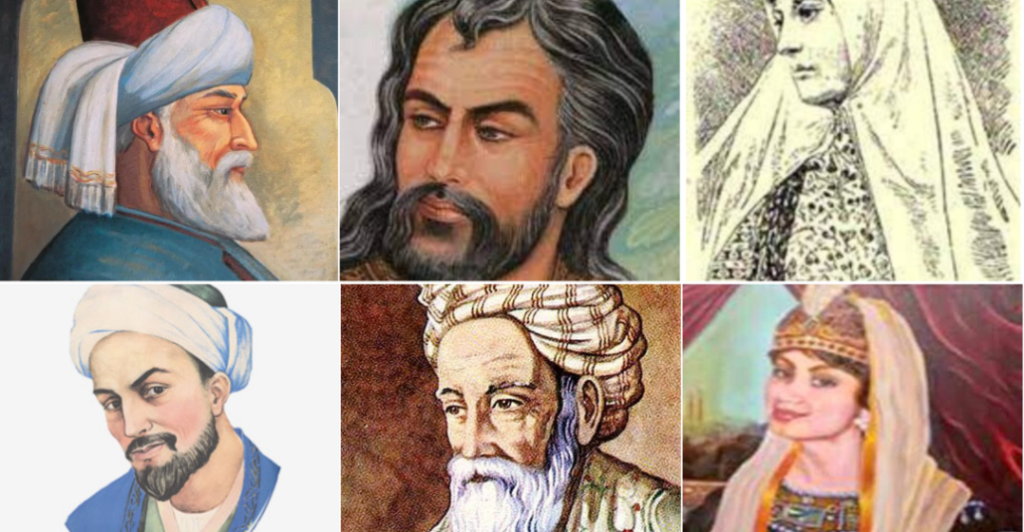
A few Notable Classical Poets
- Rudaki 859-c. 940 Father of Persian Poetry.
- Ferdowsi 940-1020 – Poetry and History
- Omar Khayyam 1048-1131 – Poet and Mathematician
- Attar 1145 – 1220 – Poetry and Philosophy- murdered horrifically by Monguls.
- Rumi 1207-1273- Poetry and Sufiism
- Saadi 1213-1291 – Poetry and Philosophy
- Hafez Shiraz 1315-1390 – Poetry and Mysticism
Classical Women Poets
- Mahasti Ganjavi (1089-1159).
- Tahereh Ghoratolein.
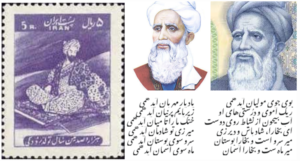
Rūdakī Khorāsāni
The first poet of note to compose poems in the “New Persian,” written in Arabic alphabet, widely regarded as the Father of Persian poetry. He
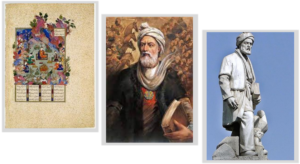
Ferdowsi the Poet that Captured Iran’s past History
Hakeem Abol-Ghasem Ferdowsi Tousi was a dehqān (“landowner”), in 940 deriving a comfortable income from his estates, in the village of Paj, near the city
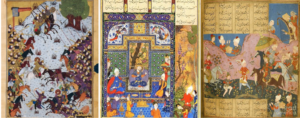
Ferdowsi’s Poetry in Shahnameh
Ferdowsi: “Shahnameh is not a fairytale, there are secrets that need to be solved. Documented history is full of horrific atrocities, beheadings, eye gauging, burnings,

Shahnameh
Shahnameh Poems can be categorized in 3 groups: I) Asatiri/Mythological – 1/10 of the book. From the first mythical king Keyumars (Pishhdadian Dynasty) to Keyghobad
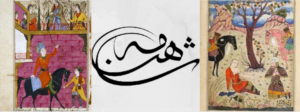
A few of Shahnameh’s Icons
KeyumarsFirst mythical king/human – Per Shahnameh and Aveesta DjamsheedFourth mythical Pishdadian king (sometimes referred to as Soleiman). Persepolis is called Takht e Djamsheed – the
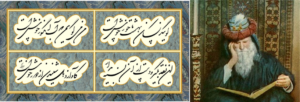
Omar Khayyam: Poet, Philosopher & Scientist
Omar Khayyam was a Persian mathematician, astronomer, philosopher, and poet. He was born in Nishapur, in northeastern Khorosan, and was contemporary with the rule of
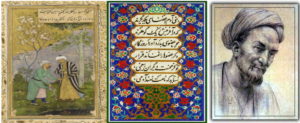
Saadi – the Poet, who Preached Morality and Love
Saadi, born in Shīrāz, Iran is one of the greatest figures in classical Persian literature (1213 -1291). He left home to explore the world in
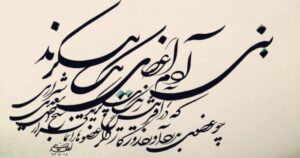
Saadi’s Immortal Poem: Bani Adam (Humans)
One of Saadi’s most well-known poetry is this one where he considers all humans as different parts of a whole body. The poem comes from
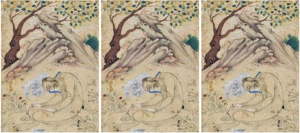
Rise of Mysticism & Sufism
The shift from God the Divine disciplinarian to God the Loving Creator started early on in the Islamic world. The introduction of the element of
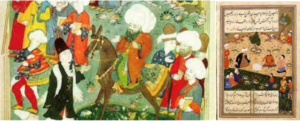
Rumi or Molana
Jalāl al-Dīn al-Rūmī (1207–73), the greatest mystical poet in the Persian language, was moved by mystical love to compose his lyrical, didactic poems. His Divan

Sama
Sama is a Sufi worship ceremony, which often includes singing hymns, playing instruments, dancing, recitation of poetry and prayers, wearing symbolic attire, and other rituals.
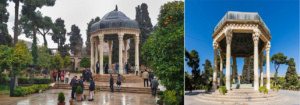
Hafez-e Shirazi
Khwajeh Shams al-Din Muhammad Hafez-e Shirazi a Persian poet was born sometime between the years 1310-1337, in the city of Shiraz in present-day Iran. Hafez
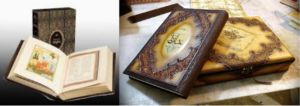
Divan Hafez
Iranians use the Divan of Hafez as an oracle for fortune telling, especially during the Nowruz or Yaldā holidays. The ritual starts with a plea
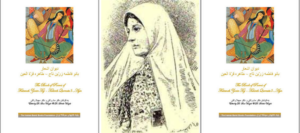
Tahereh Ghoratolein
Fatimah Zarrin Taj Baraghani Ghazvini was born sometime between 1814 and 1817 in Muslin Shia family. She was intelligent and got educated. Early on she
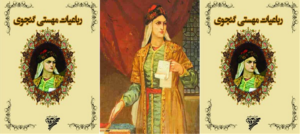
Mahasti Gangavi
Manija (Mahsati) Ganjavi, born c. 1089 in Ganja (currently part of Azerbaijan) – died sometime after 1159, was a 12th-century Persian poet. Not much is
